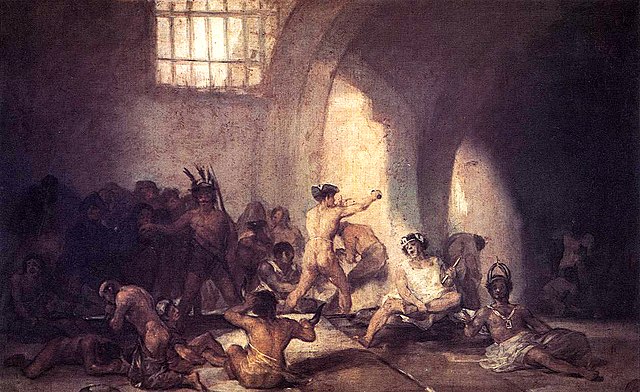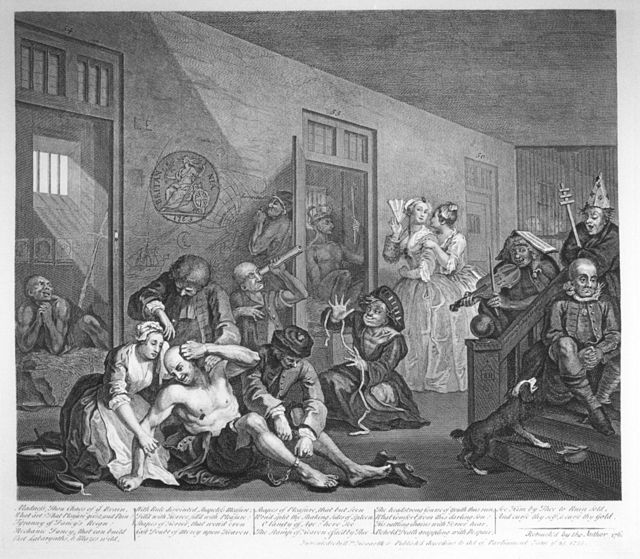Madness and Civilization: A History of Insanity in the Age of Reason is an examination by Michel Foucault of the evolution of the meaning of madness in the cultures and laws, politics, philosophy, and medicine of Europe—from the Middle Ages until the end of the 18th century—and a critique of the idea of history and of the historical method.
The Librairie Plon edition
In the 17th-century Age of Reason, insane and socially undesirable people would end at The Madhouse. (Francisco Goya, 1812–1819)
A Rake's Progress no. viii: the inmates at Bedlam Asylum, by William Hogarth
Paul-Michel Foucault was a French philosopher, historian of ideas, writer, political activist, and literary critic. Foucault's theories primarily address the relationships between power and knowledge, and how they are used as a form of social control through societal institutions. Though often cited as a structuralist and postmodernist, Foucault rejected these labels. His thought has influenced academics, especially those working in communication studies, anthropology, psychology, sociology, criminology, cultural studies, literary theory, feminism, Marxism and critical theory.
Foucault in 1974
In the early 1950s, Foucault came under the influence of German philosopher Friedrich Nietzsche, who remained a core influence on his work throughout his life.
Foucault adored the work of Raymond Roussel and wrote a literary study of it.
Graves of Michel Foucault, his mother (right) and his father (left) in Vendeuvre-du-Poitou







